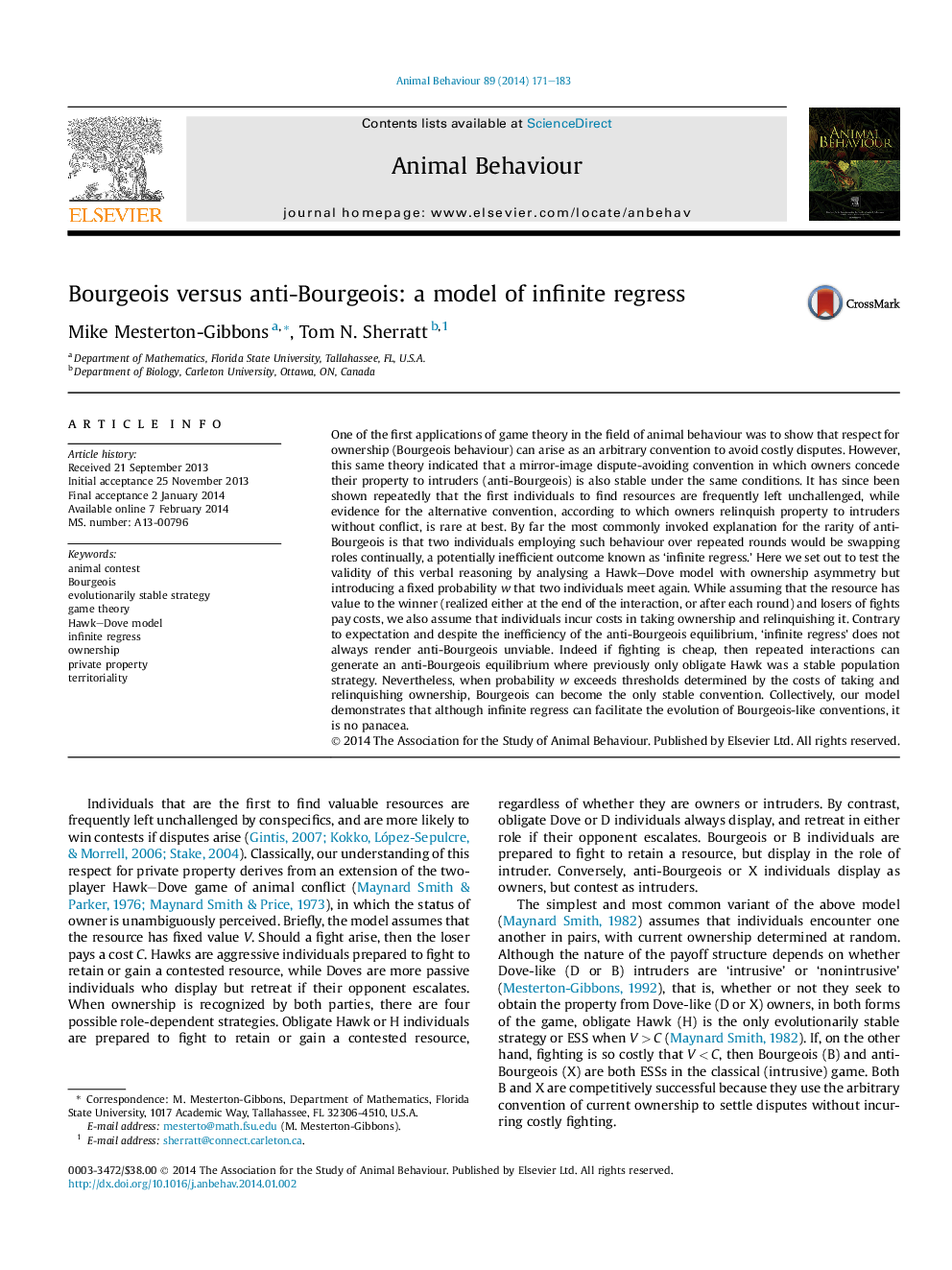| کد مقاله | کد نشریه | سال انتشار | مقاله انگلیسی | نسخه تمام متن |
|---|---|---|---|---|
| 2416460 | 1552239 | 2014 | 13 صفحه PDF | دانلود رایگان |
• Models show that when fighting is costly, conventions based on ownership will evolve.
• The ‘deference-to-owners’ convention is common, ‘deference to nonowners’ rare.
• Deference to nonowners may be rare because it would involve repeated role swapping.
• We show that both conventions remain possible in repeated games with moving costs.
• High probabilities of repetition and high moving costs promote deference to owners.
One of the first applications of game theory in the field of animal behaviour was to show that respect for ownership (Bourgeois behaviour) can arise as an arbitrary convention to avoid costly disputes. However, this same theory indicated that a mirror-image dispute-avoiding convention in which owners concede their property to intruders (anti-Bourgeois) is also stable under the same conditions. It has since been shown repeatedly that the first individuals to find resources are frequently left unchallenged, while evidence for the alternative convention, according to which owners relinquish property to intruders without conflict, is rare at best. By far the most commonly invoked explanation for the rarity of anti-Bourgeois is that two individuals employing such behaviour over repeated rounds would be swapping roles continually, a potentially inefficient outcome known as ‘infinite regress.’ Here we set out to test the validity of this verbal reasoning by analysing a Hawk–Dove model with ownership asymmetry but introducing a fixed probability w that two individuals meet again. While assuming that the resource has value to the winner (realized either at the end of the interaction, or after each round) and losers of fights pay costs, we also assume that individuals incur costs in taking ownership and relinquishing it. Contrary to expectation and despite the inefficiency of the anti-Bourgeois equilibrium, ‘infinite regress’ does not always render anti-Bourgeois unviable. Indeed if fighting is cheap, then repeated interactions can generate an anti-Bourgeois equilibrium where previously only obligate Hawk was a stable population strategy. Nevertheless, when probability w exceeds thresholds determined by the costs of taking and relinquishing ownership, Bourgeois can become the only stable convention. Collectively, our model demonstrates that although infinite regress can facilitate the evolution of Bourgeois-like conventions, it is no panacea.
Journal: Animal Behaviour - Volume 89, March 2014, Pages 171–183
